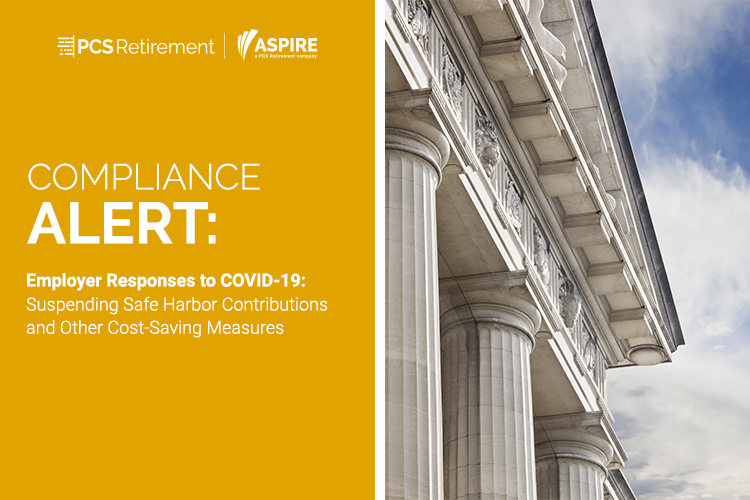
The COVID-19 global pandemic has created a multitude of challenges for employers. In addition to addressing organizational issues, employers that sponsor retirement plans and their fiduciaries must continue to manage and make retirement plan decisions during these unprecedented and uncertain times. As a response, small businesses adversely affected by COVID-19 may be considering terminating their 401(k) plans to end their contribution obligations and cut costs. This may be an unnecessary response to what may be short-term problem, and it could have adverse consequences since generally the “successor plan” prohibits covering the same employees in a new plan for twelve months following the termination.
While we hope that employer contributions to retirement plans will continue, we understand that business circumstances may require a plan sponsor to take cost-saving measures that could include suspending contributions or even terminating plans. A plan sponsor considering the suspension and termination options should make an informed decision based on an understanding of the technical rules that must be followed. Employers who sponsor plans with a safe harbor feature may want to keep in mind that the safe harbor contribution can be suspended. The regulations permit contributions to be suspended mid-year if the Employer is operating under an economic loss for the year (see IRC 412(c)(2)(A)); or the safe harbor notice provided to participants before the plan year states that the employer:
Here are some procedural notes to bear in mind when considering whether to suspend safe harbor contributions and implement other cost-saving measures:
Business circumstances may require a plan sponsor to take cost-saving measures. We hope this information clarifies your options.
Federal tax deadline moved to July.
U.S. tax filing day is moved from April 15 to July 15. "We are moving Tax Day from April 15 to July 15. All taxpayers and businesses will have this additional time to file and make payments without interest or penalties," Treasury Secretary Steven Mnuchin announced in a pair of tweets.